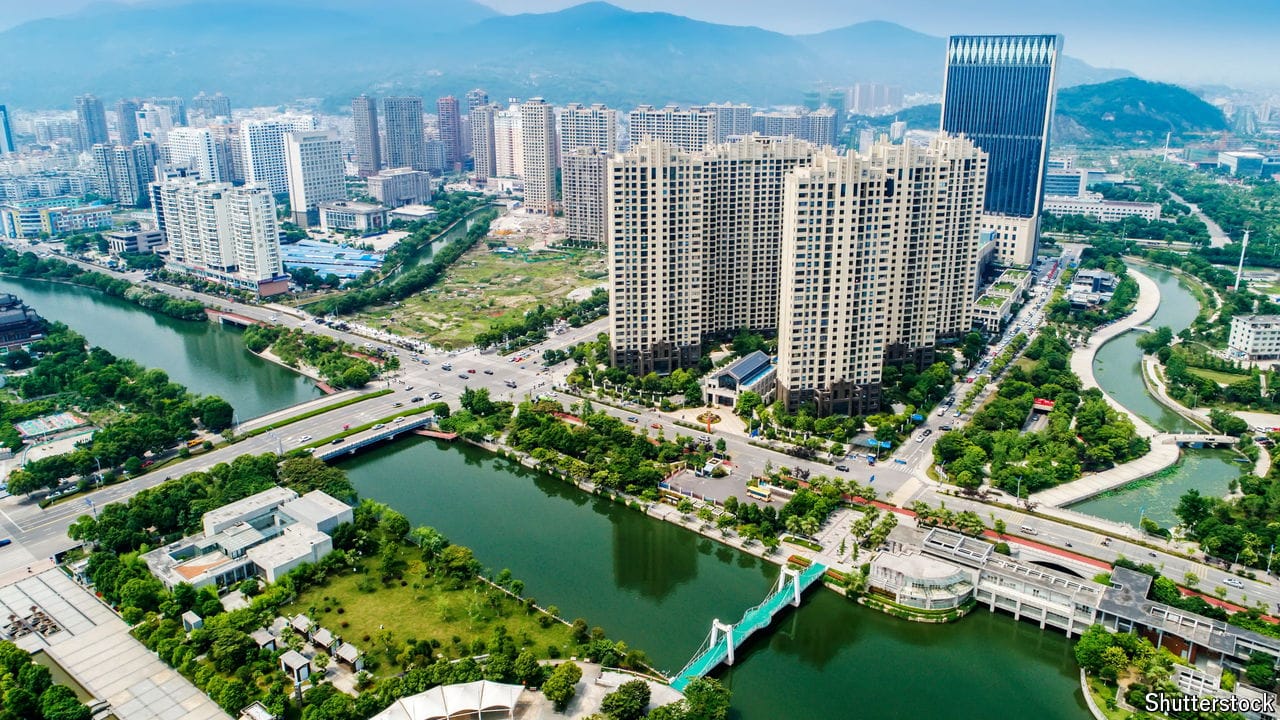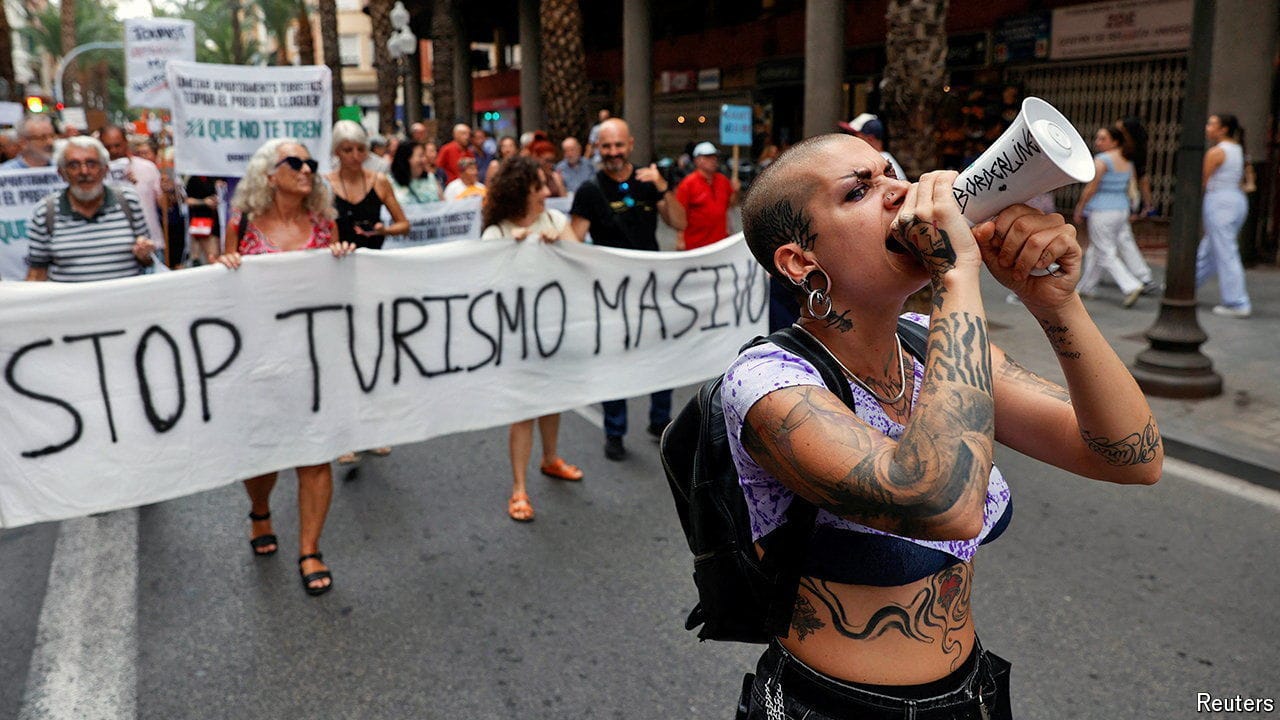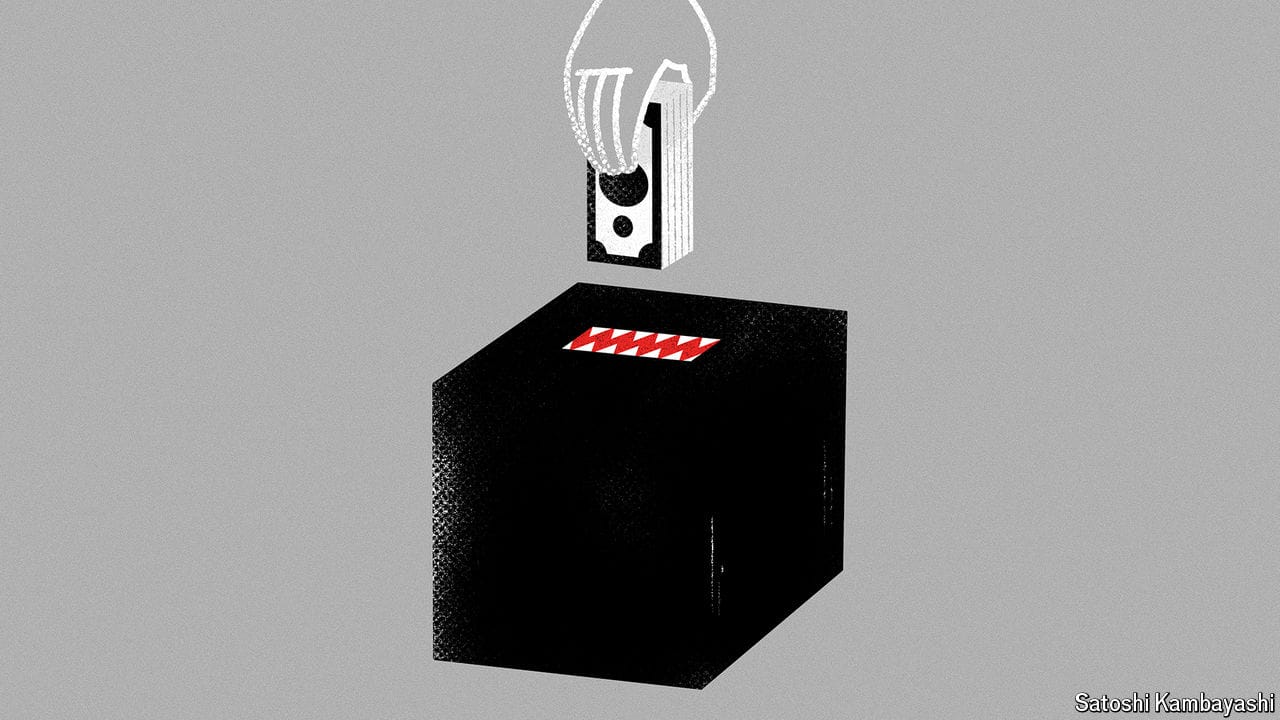A new history of sanctions has unsettling lessons for today
Sometimes they create the problem they are trying to solve

JUST AFTER the end of the first world war and the dissolution of Austria-Hungary, one observer noted that “every clock in Prague [was] gone, melted for the metals.” Another, in Vienna, saw children “wrapped in paper, for want of sheets and blankets”. At the time much of Europe was under strict economic sanctions, as western powers tried to hold the post-war peace and restrain communism. It was the first time that the “economic weapon”, the title of Nicholas Mulder’s new book, had been used, but by no means the last. By the 2010s a third of the world’s population lived under sanctions. Prominent among the current targets is Russia, which will face further sanctions if it invades Ukraine. Mr Mulder, of Cornell University, looks at sanctions over the three decades after the first world war—and reaches unsettling conclusions.
Economic war against civilians is a centuries-old phenomenon. During the Hundred Years’ War English troops launched countless brutal sieges against French garrisons, often starving them into submission. Blockades were an important part of the toolkit of the naval wars of the 18th century. Sanctions were and are different. Rather than being imposed by one country on another, they often involved groups of countries coming together to punish rogue states. The formation of the League of Nations in 1919-20 made co-ordinated action easier. And rather than being seen as an act of war, sanctions were often supposed to prevent it.
This article appeared in the Finance & economics section of the print edition under the headline “The wonks’ weapons”
More from Finance and economics

China’s last boomtowns show rapid growth is still possible
All it takes is for the state to work with the market

What the war on tourism gets wrong
Visitors are a boon, if managed wisely

Why investors are unwise to bet on elections
Turning a profit from political news is a lot harder than it looks
Revisiting the work of Donald Harris, father of Kamala
The combative Marxist economist focused on questions related to growth
Donald Trump wants a weaker dollar. What are his options?
All come with their own drawbacks
Why is Xi Jinping building secret commodity stockpiles?
Vast new holdings of grain, natural gas and oil suggest trouble ahead
